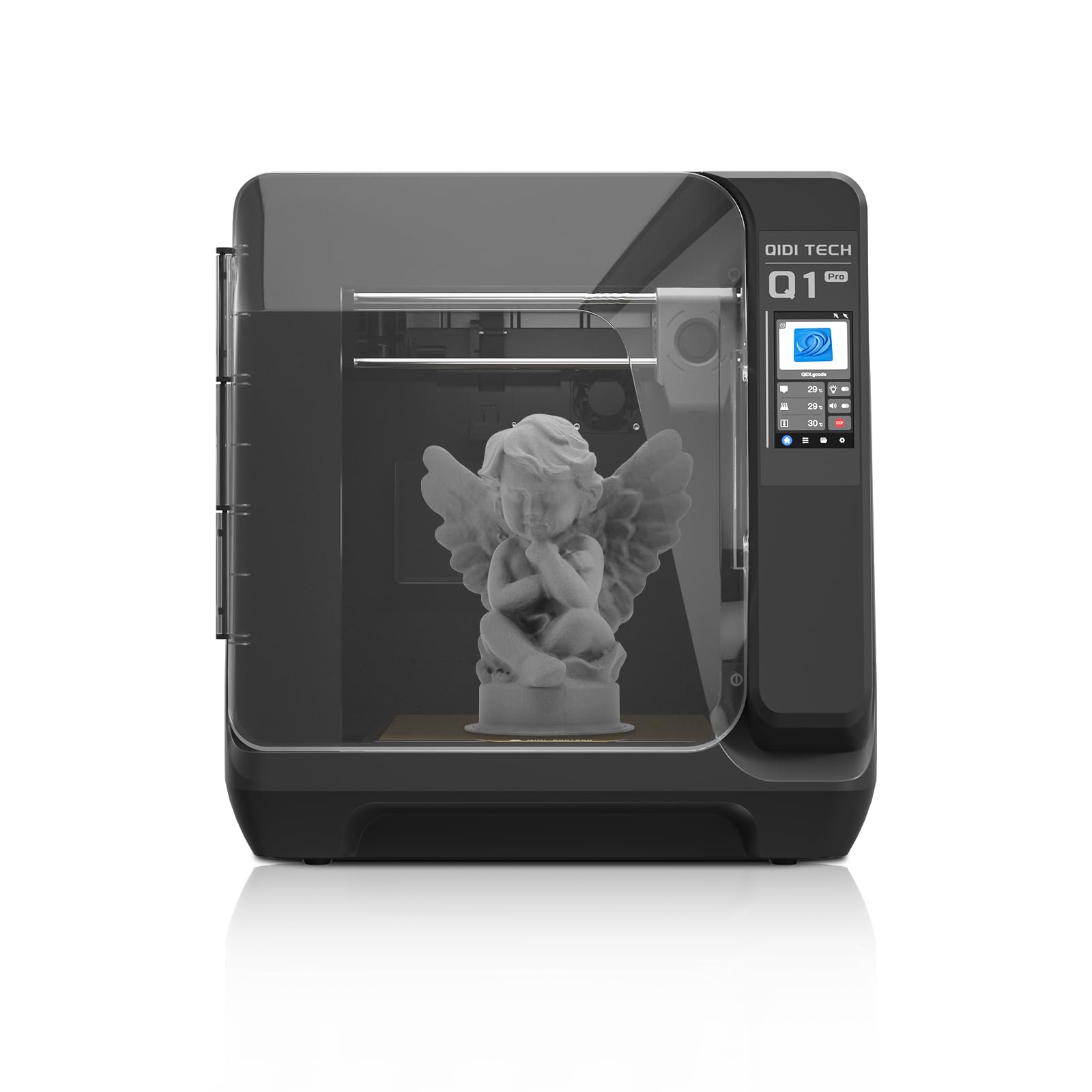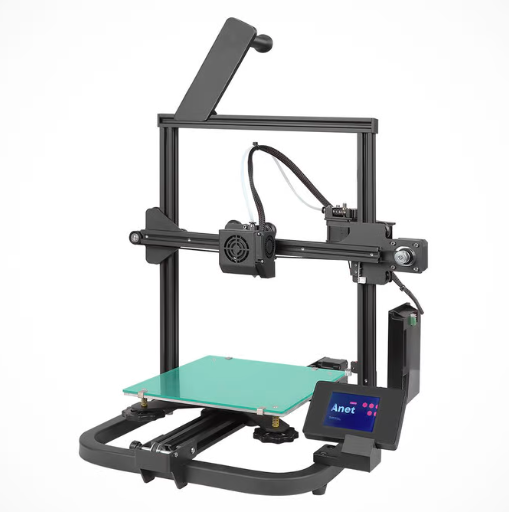Compare Q1 PRO vs A8 V2
Comparison between the best 3D printers
Choose the best 3D printer at the best price. The cheapest 3D printers are here.
Buy a 3D printer here with 3D Fila.
 |
 |
|
| Model | Q1 PRO[BUY Q1 PRO] |
A8 V2 |
| Printing Material | Filament | Filament |
| Buy Filament for QIDI Q1 PRO | Buy Filament forAnet A8 V2 | |
| Estimated price | $449,00 | $129,00 |
| Manufacturer | QIDI | Anet |
| Release Year | 2024 | 2021 |
| Print Volume [mm] | 245x245x245 | 220x220x250 |
| Printer Size [mm] | 467x477x489 | 428x441x486 |
| Weight [kg] | 20 | 6,2 |
| Power Loss Recovery | YES | NO |
| Enclosed printer | YES | NO |
| Bed Leveling | Automatic | Manual |
| Filament End Sensor | YES | NO |
| Bed type | Heated | |
| Power supply system | Direct Drive | Bowden |
| Standard nozzle | 0,4 | 0,4 |
| Maximum Nozzle Temperature [°C] | 350 | 230 |
| Maximum Bed Temperature [°C] | 120 | |
| Maximum printing speed [mm/s] | 600 | 150 |
| Filament holder | YES | YES |
| Camera for supervision | YES | YES |
| Recommended filaments | PLA、ABS、ASA、PETG、TPU、PC、PA、PA-CF、PET-CF、PAHT-CF etc. | PLA |
| Recommended slicers | QIDI Slicer/Cura/Simplify 3D/ORCA/PRUSA Slicer | Cura, Simplify, Slic3r, IdeaMaker |
| Maximum Resolution [mm] | 0,1 | 0,1 |
| Processor | Cortex-A53,64-bit Processor | |
| Display | Touchscreen 4,3'' | Display touchscreen 2,8'' |
| Power Supply | 350 W | 110/220V / 250W |
| Connectivity | WiFi/USB Flash Drive/Ethernet Cable | SD / USB |
| Operating systems | Windows, Linux, Macbook | Windows, Mac, Linux |
| Date of registration in the system | 2024-07-09 | 2022-11-10 |
| Release date | 2024 | 2021 |
| Extra features | The QIDI Q1 Pro 3D printer stands out for its Core XY structure and heating chambers that reach up to 60ºC, ideal for advanced materials such as ABS and Nylon. It features Klipper firmware, an automatic leveling system, a high-flow extruder with a double metal nozzle and a hotend that reaches 350ºC. It offers connectivity via Wi-Fi, USB and Ethernet, as well as a 1080p camera for remote monitoring and an intuitive touchscreen for easy operation. | The Anet A8 V2 is a Cartesian-XZ type 3D printer with a build volume of 220 x 220 x 250 mm, Ender 3 design and V-slot assembly. It has a 32-bit motherboard and touchscreen interface, promising ease of use. It uses open source firmware and has thermal failure protection. It stands out for its cable organization and the absence of a heated bed, focusing on energy savings and PLA printing. It comes with an external power adapter, aiming at greater safety, especially for beginners and educational use. |
| Support for multiple colors and materials (AMS and CFS) | NO | NO |
Notes * |
||
| Cost-benefit | 8 / 10 | 6 / 10 |
| Hardware | 5.4 / 10 | 0.6 / 10 |
| Tela | . | . |
| Print volume | 3 / 10 | 3 / 10 |
| Performance | 5 / 10 | 1 / 10 |
| [BUY Q1 PRO] |
Conclusion |
| In conclusion, the comparison between the QIDI Q1 Pro and the Anet A8 V2 3D printers highlights significant differences in capabilities and features that cater to different user needs. The QIDI Q1 Pro, priced higher, offers advanced functionalities such as automatic bed leveling, power loss recovery, and a heated enclosure, making it ideal for users who wish to experiment with a diverse range of materials beyond PLA, including ABS and Nylon. Its larger print volume, higher maximum print speed, and superior print quality further position it as a professional-grade option suitable for more complex projects. On the other hand, the Anet A8 V2 serves as an economical entry-level option. While it lacks some advanced features found in the Q1 Pro, it remains competent for basic 3D printing tasks, particularly with PLA. Its design focuses on ease of use and safety, making it a practical choice for beginners or educational settings. Ultimately, the choice between the two depends on the user's specific printing needs and budget. Those seeking higher performance and versatility may find the investment in the QIDI Q1 Pro justified, while hobbyists or educational users on a budget might prefer the simplicity and cost-effectiveness of the Anet A8 V2. |

